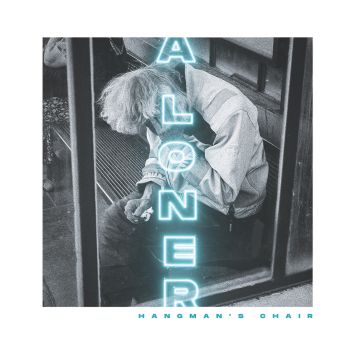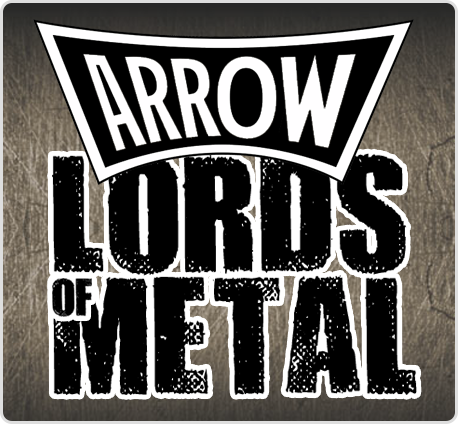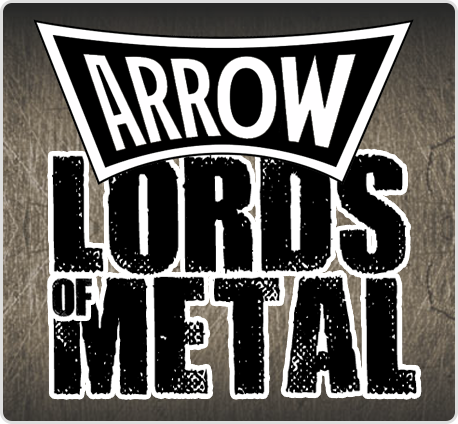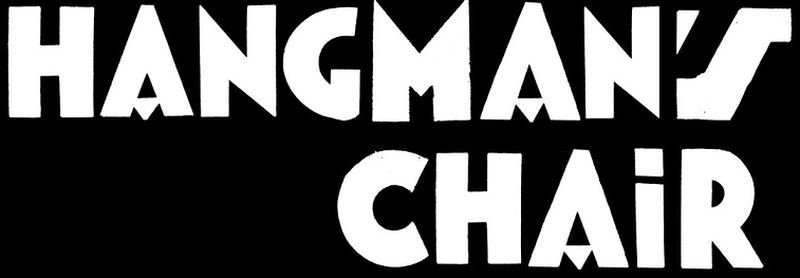
Julien Chanut: “In comparison with the previous albums, it is most atmospheric, even the most melancholic album. I think because we were in that mood when composing it and maybe because of the lockdown, we couldn’t rehearse. So we had to work alone”
De geestelijke vlucht uit de depressieve voorsteden van Parijs wordt door Hangman’s Chair omgezet in doorleefde songs vol uitwaaierende klanken, een doomy spirit en beukende shoegaze. Het Franse viertal heeft op ‘A Loner’ een eigen stijl ontwikkeld, dit is een amalgaam van alle eerdere invloeden met ‘atmosferische doom’ en ‘post rock’ als kernwoorden. Voor dit zesde album nam Nuclear Blast hen aan boord, ten einde hen uit de obscure underground te trekken. Gitarist Julien Chanut vertelt ons zijn verhaal over hoe zijn grote liefde – muziek – hem geholpen heeft om sterker te staan in het leven.
Vera Matthijssens Ι 14 februari 2022
In 2018 the previous album ‘Banlieue Triste’ came out. Many things changed since then, one of them is that you inked a deal with a big label, Nuclear Blast. Before that, the band always had a DIY approach. What did it change for you?
With the previous albums, we were on Musicfearsatan, a Parisian label, but for ‘Banlieue Triste’ we moved to Spinefarm Records, so that was a step for us, but we decided to move to Nuclear Blast because they were interested in us. Also because they were opening a new office in Paris, so it could be easier for us for the communication to see the people, because when you work from different countries, it is really hard. It was a good choice for us, because Nuclear Blast is one of the biggest labels in the world and after previous works, we wanted to go international. So that was our best move to do. It is a big team. We never had that, we are just discovering it.
You are not really metal, so I think they are broadening their musical horizon as well?
When you see the older bands from Nuclear Blast, amongst them many German bands, I won’t tell the names, but it is not the same kind of music as we do. We are more an underground band. I think they are changing their vision and the people who work there and I think the new direction they want to go is with signing bands like us, more modern bands, they also signed Celeste from France, Alcest is there. I think that is the way they want to go.
Maybe they cannot ignore big events like Desert Fest and Roadburn anymore… where you played your first gig in the Netherlands…
Yes, we already played at Roadburn four or five years ago and we were planned to play there in 2020, but because of the lockdown we could not play. I hope we can play there this year. We are really excited to do it. Like you said, it is a very original festival.
When I listen to your music, the songs are built up like jam sessions. How do you actually write songs?
Not during jam sessions (laughs). We never play or work like that. We don’t have the capacity I think. I and the drummer Mehdi are the main composers of Hangman’s Chair and we like to compose our songs by ourselves. Here from my side, Mehdi from his place and then the two of us reunite and compose the song. This time it was really different, because we couldn’t go to our rehearsal place because of the lockdown. We composed the album one year ago. So we had to go to another level with the computer (chuckles) and exchange my guitars and his drums and put it on computer. We did it like that, but we had a long time to do it, because there was the monster of lockdown, so we had a lot of time to get into details. After the lockdown, we did the demos and these were really good. Then, after that, we went to the studio.
One of my favourite tracks is ‘Supreme’, it has a kind of soaring vibe and even a bit Pink Floyd-ish atmosphere…
This song is one of Mehdi’s songs and I know that since he was a kid, he has been a very, very big fan of Pink Floyd. Maybe unconscious for him, he composes like that. When I put my guitars on that song, I was thinking of very ambient things. Not riffs, but cloudy things. That was just about the mood.
Indeed, your music really depends on atmosphere and you have made a huge musical development since the start. I think this is your most atmospheric album, isn’t it?
Yes I agree. In comparison with the previous albums, it is most atmospheric, even the most melancholic album. I think because we were in that mood when composing it and maybe because of the lockdown, we couldn’t rehearse. So we had to work alone, I think it pushes you to get more into the melodies than when you compose during rehearsals. Then you are more in the tension of the song, you want to play it. When you are alone, you are more laidback and you have time to get more into the details of the melody and the melancholy.
It makes sense, because the concept and the lyrics deal with loneliness and isolation. Can you tell a bit more about the lyrics?
Yes. The theme of loneliness, strangely enough, came before the lockdown. Two years ago I have been in a depression and the best move I could do was to be alone, to cure my brain. I just wanted to be alone. Even from my friends, even from my family, that is when I wrote those lyrics. It is just about every step you feel in the depression and loneliness and I really felt better when I was alone at that time. It brought me to what I wanted to write about on this album and it was only at the end of the compositions I realized that I was only talking about loneliness. I was reading an article about The Cure and the journalist was talking about their three first albums and the third album ‘Faith’ he was talking about as the album of the loner. That is a really good name and that is why we chose ‘A Loner’ for the title, because it is a kind of music that you will listen to in your room with your headphones alone.
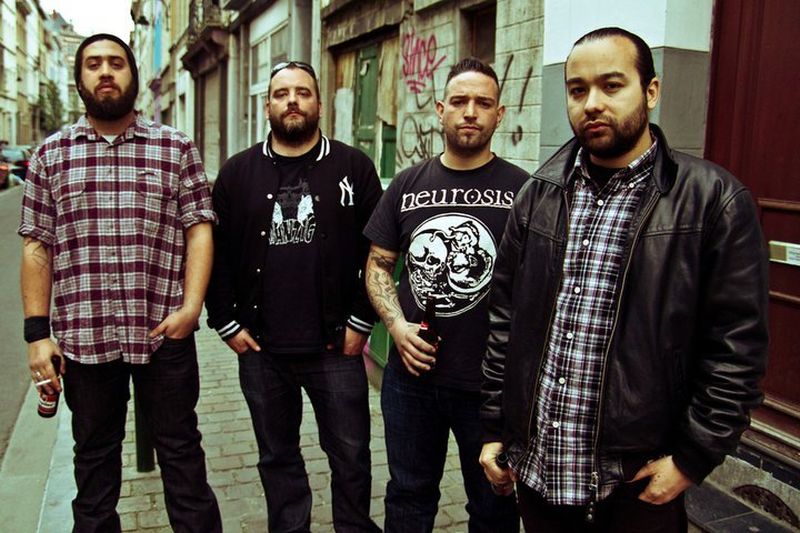
It is a nice word play too, ‘A Loner’ includes the word ‘alone’…
Indeed.
Did you do any tours for the previous album ‘Banlieue Triste’ before the lockdown?
We have been to – of course France – we have been to Belgium, since we have a lot of connections in Belgium since we were kids, we played in the Netherlands. We have also been to Las Vegas. There is a big festival ‘Psycho Las Vegas’. You play in the casinos at several places and there are many bands. Danzig, The Misfits, Corrosion Of Conformity, a big festival and it was the first time in the US. We have been to Russia, to Poland. Poland is also a place where we used to go when we were kids. I think for the next tour, we are going to have a lot of shows. The first shows of our February tour are already deleted or postponed. We had like twenty dates with Alcest on tour, but eventually it was postponed. The rest of the shows are still there. I think the tour should start in March now. Maybe the restrictions will be better by then. It is complicated these days.
Let us talk about the video clips. The first one I saw was for ‘An Ode To Breakdown’ and it was a sort of live stream…
We did a live stream for Hellfest. Hellfest invited us to do the live stream from home and we did three songs and we asked them if they could record another song for us to release after Hellfest and they said yes. It was a really good deal for us. The last video is for ‘Who Wants To Die Old’. We shot it in the woods near Paris. It is in an old asylum in the woods, but it is not working anymore now, only in ruins. It is a really spooky place with a lot of memories in it. It was really a crazy experience to film there.
I was a bit surprised that among your favourites one can find names like Type O’Negative and Alice In Chains, because today you don’t hear those influences much in your music anymore. What did Type O’Negative mean for you in the past?
It was really a big influence for us, because we come from the hardcore scene in Paris. I have been playing with Mehdi, our drummer, in hardcore bands and you know that Type O’Negative comes from Brooklyn, New York and they had a lot of connections with the hardcore scene, so we thought we had something like Type O’Negative, like Life Of Agony, and I think on our previous albums it was more obvious that we were influenced by Type O’Negative or Alice In Chains, but we found our own identity now.
What can you tell about the artwork?
On our previous album we were working with Dave Decat, a guy from Brussels and this time we wanted to change and we asked a friend of ours from Paris to make the cover, but the picture on the cover we used, is from a friend from Belgium too, from Brussels. He does a lot of black and white photography with a lot of contrast, like Japanese artists. He loves to take pictures of everyday life. We wanted to work with him and we asked him if he has a picture that could describe loneliness and he gave us this picture. That is how we did it. So it is like a random picture in the street. It is a real character, it is real life.
Well, I hope you have recovered a bit from depression, music is a good outlet for these negative emotions…
That is the way I express myself. I don’t like to talk about my problems to people, but I like to express it in the music and the lyrics and with the guitar.
